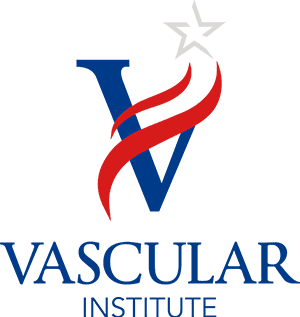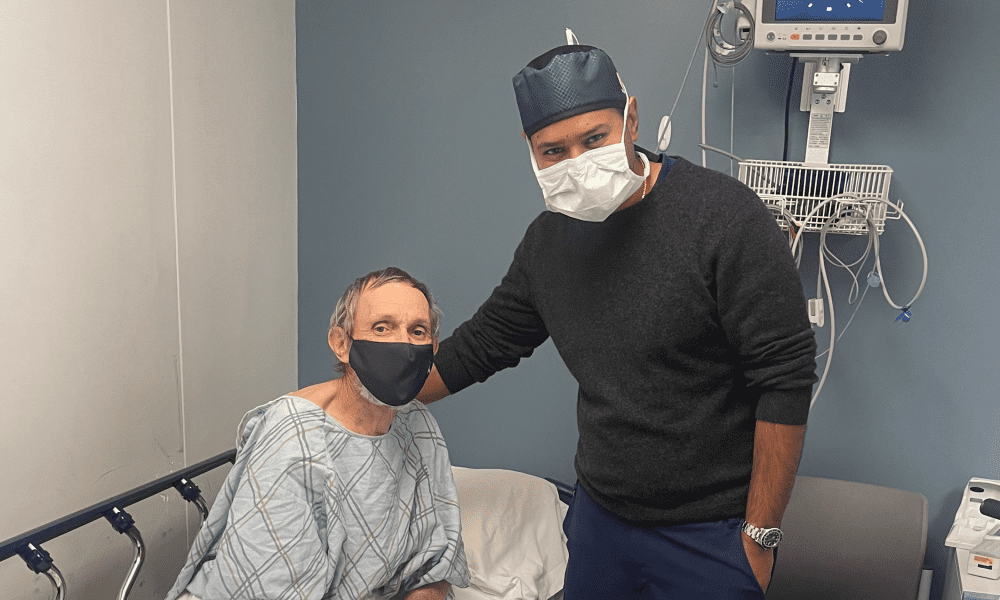Four years ago, David Murphy felt pain in his right foot, prompting him to seek treatment that would begin a long odyssey of doctor’s visits, procedures, pain, and hardships – all attributed to vascular disease.
David Murphy, 62, a veteran and father of two, has always worked on his feet, most recently in a warehouse position in Olive Branch. When he first developed pain in his right foot, he delayed seeking medical help until walking became excruciating. Later, he replied, “I never go to the doctor, so you know it had to hurt pretty bad.”
Sitting down with David in late November of 2022, he recounts what he has been through in the four years since the first onset of pain. His hope for relief is palpable and it serves as a heartening reminder of why individuals choose careers in medicine.
In January 2018, David was referred to a vascular surgeon and diagnosed with Peripheral Arterial Disease (PAD), a disorder that causes decreased blood flow to the legs, abdomen, and arms. When blood flow is restricted, the lower extremities can’t acquire enough oxygen and nutrients to keep healthy or heal wounds, causing major consequences.
David had his first endovascular operation, an angioplasty with stenting, one month after being diagnosed with PAD. An angioplasty employs a balloon to unblock clogged arteries and restore blood flow. A stent is a mesh tube sometimes inserted in an artery to allow blood flow permanently.
In August 2019, a year after his first diagnosis and treatment, David’s pain progressed from light to severe, with non-healing sores, discoloration, and numbness. David’s arteries were blocked again 18 months later, requiring four further angioplasties with stenting over 18 months.
By fall 2020, David’s foot had deteriorated, limiting his lifestyle. His treatments thus far had only helped temporarily. His now necrotic heel ulcer forced him to use a knee-scooter. This is when his primary care practitioner encouraged him to try a new approach to heal his foot.
David then started receiving care at Advanced Wound Care, where he saw wound specialist Jennifer McKee, FNP-BC, and started to heal. Jennifer kept a careful eye on David’s development and took the initiative to enlist vascular surgeon, Dr. Prateek Gupta, in his treatment.
Dr. Gupta revascularized David’s right leg in February of 2022, both of his legs in March, and his right leg once more in May due to the severity of David’s PAD. His arteries had recently re-occluded, and the severity of his PAD meant that he was in grave danger of losing limbs.
The effects of David’s reduced mobility and ongoing pain made it difficult for him to carry out all of his job duties and daily responsibilities. He eventually went on short-term disability as a result, but when the business changed hands and David was unable to carry out crucial duties of his position, he was let go.
Now without insurance, David worried about losing access to the specialized care he’d been receiving, “I see Jen more than my family, I was scared I wouldn’t be able to get therapy without insurance, but she urged me not to worry and to keep coming to see her. She’s been wonderful to me.” The providers have taken a personal involvement in David’s care so when he lost blood flow to his right foot this November, suspending care was not an option, his procedures and subsequent treatments will be covered at no charge. Their main goal is helping David heal and they do not want any financial stress to impede that.
Today, Dr. Gupta will be treating him via pedal approach in the hopes of ultimately restoring adequate blood flow to heal the ulcer. Previous surgeons conducted a lot of long segment stenting on David, limiting Dr. Gupta’s treatment options. The pedal approach is David’s last chance to escape amputation.
David describes his PAD pain as a “burning pain that aches to the bone; my toes feel frozen, and my foot is frigid.” David says he wouldn’t wish this grief on anyone, no matter how much he dislikes them. He hasn’t gone hunting, fishing, or camping in three years and recently lost his driving privileges. His religion gives him strength, and he thinks this treatment will provide him the relief he needs to live again.
Peripheral Artery Disease is an increasingly common condition, with almost 7 million Americans suffering from it. People over 60, smokers, diabetics, and individuals with high blood pressure or high cholesterol are at increased risk for PAD and the complications associated with it.
Leg pains, non-healing sores on the legs or feet, fatigued legs that get better with rest, cramping or burning legs, numbness in the legs or feet, feet that are chilly to the touch, and decreased hair growth on the legs are all signs of vascular disease and PAD. Although these symptoms are common, PAD can exist without any leg pain at all.
Pay attention to your body’s alarm if you have symptoms of PAD. Vascular disease and PAD can cause stroke, renal failure, limb loss, and death if untreated. If you’re hurting, seek treatment like David and millions of Americans. With early management, amputations can often be prevented.
Dr. Gupta is passionate about caring for his patients in all walks of life, helping them heal and get their lives back is his driving force. Our team of vascular surgeons are committed to giving back to our community and ensuring patients, like David that have no other option, achieve the best possible outcomes by providing them the most advanced vascular and vein care.
The Vascular Institute and its Limb Preservation Center have the highest revascularization rate in the Mid-South. If you or someone you know is at risk for PAD or experiencing symptoms, call us to schedule a consultation with an EXPERT

